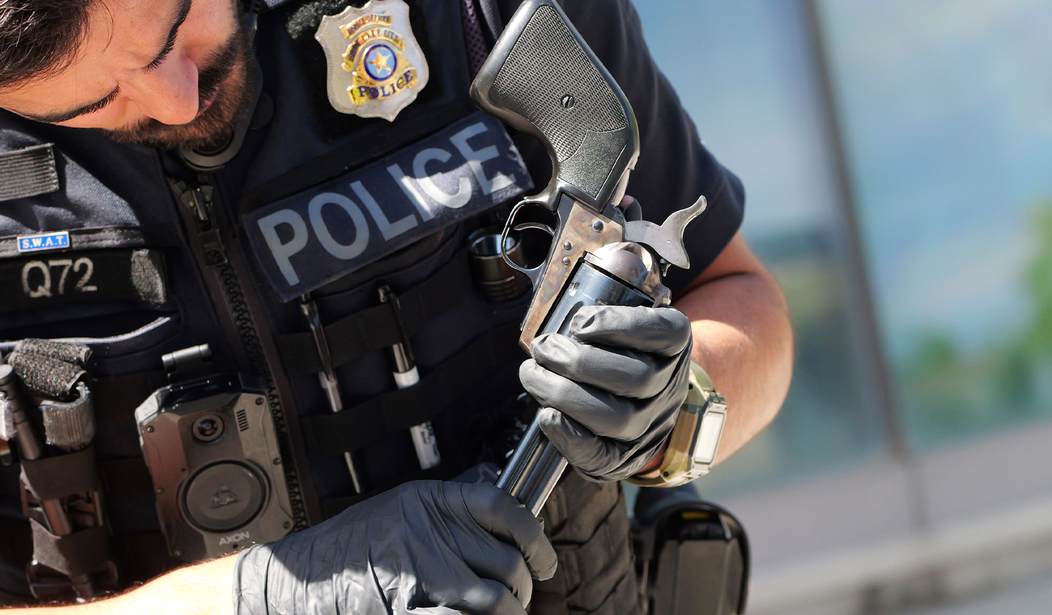And not just any Democrat either. State Sen. Rhonda Fields is one of the most vociferous supports of gun control in the statehouse, and is helping to craft a new ban on “assault weapons” that, according to a draft copy that’s been leaked, would ban most modern sporting rifles, semi-automatic shotguns, and even some commonly-owned semi-automatic handguns.
You’d think someone so passionate about criminalizing a constitutionally-protected right would at least have some knowledge of how the state’s existing gun control laws worked, but Fields revealed a staggering cluelessness about Colorado’s Extreme Risk Protection Order at a hearing this week. Quizzing Colorado Attorney General Phil Weiser during a joint meeting of the House and Senate Judiciary committees, Fields wanted to know what the state can do to sheriffs or police chiefs who don’t utilize the law as much as she thinks it should be.
The red flag law conversation was reignited after the Club Q mass shooting in Colorado Springs last year. The shooter had been previously arrested after a bomb threat and standoff with law enforcement, but the case was dropped and nobody sought a red flag order against them.
El Paso County Sheriff Bill Elder has publicly expressed opposition to the red flag law and has never filed a petition.
Sen. Rhonda Fields, a Democrat from Aurora, questioned Weiser about the enforcement mechanisms his office has against local leaders who speak against enacted legislation.
“I believe we had an incident that created a scenario in Colorado Springs with the Club Q shooting,” she said, referring to Elder’s comments on the red flag law. “What is the role of the attorney general’s office to say you can’t pick and choose (laws)?”
Weiser reaffirmed that the red flag law is constitutional and said he has engaged with sheriffs who have criticized the law as going against Second Amendment rights. He said that of the 32 sheriffs who were skeptical of the law when it first passed, 20 now use it.
Maybe Fields should have asked Weiser about the local prosecutor’s decision not to pursue criminal charges against the Q nightclub shooter when he was arrested and charged with five felonies for allegedly holding his grandparents hostage in their home. The D.A. says he was forced to drop the case because the suspect’s family wouldn’t testify against him, and the El Paso County Sheriff says that with all of the evidence in the case sealed by a judge, he didn’t have a good case to bring to the court.
Aldrich’s felony charges in the bomb threat case triggered a mandatory protection order, which has the same effect as red flag laws. It remained in effect the 383 days the case was pending, but ended in July 2022 with the case’s dismissal.
Under Colorado law, family members or law enforcement can request an emergency risk protection order that allows the seizure of weapons from someone deemed a reasonable threat. But the ERPO only takes effect for 14 days.
After the 14 days expire, a court can grant an extension lasting up to 364 days, but Allen said the district attorney’s office lacks the power to make such a request under state statute.
One agency that does have the power to request an ERPO is the El Paso County Sheriff’s Office, which investigated the 2021 incident.
But in a statement released Thursday, the office said Aldrich didn’t need an ERPO because it had already seized all known weapons in Aldrich’s possession and the evidence to justify an ERPO was rendered unusable when the case was dismissed and sealed.
“The legal ability Aldrich had to acquire firearms following the dismissal of the previous case and the [mandatory protection order triggered by the felony charges] can only be addressed legislatively,” reads the statement. “It most certainly is not a situation with which to indict the El Paso County Sheriff’s Office for wrongdoing or inaction in this case.”
Discretion is an inherent part of enforcement of any law, including ERPOs, no matter how broadly its crafted. How could it be otherwise? Before a judge can determine whether not the subject of a petition is a danger to themselves or others, law enforcement (or family members) must decide for themselves whether they believe an ERPO is appropriate or necessary.
How would Fields determine whether or not a particular department is using a “red flag” law often enough? Quotas? Should there just be a uniform policy that everyone arrested is automatically red-flagged? What about those cases that don’t involve criminal charges? I mean, one of the supposed reasons for “red flag” laws is that they’re a tool for law enforcement to use when they can’t specifically charge someone with a crime but believe they still pose a threat to themselves, their family, or the public at large. What metric does Fields believe should be in place to monitor and make sure enough ERPOs are being filed to her liking?
Weiser certainly didn’t have any answers for Fields, because what she’s asking for is beyond the scope of the AG’s power. One thing seems pretty clear from their exchange, however; Fields, like many of her Democratic colleagues in Denver, believes that the success of “red flag” laws depends on how often they’re invoked as opposed to what they actually do. With Gov. Jared Polis also calling for expanding the universe of individuals who can file for an ERPO, it’s almost guaranteed that Colorado Democrats will make significant changes to the current law this year, and none of them favorable to the due process rights of the Coloradans who might be subjected to one in the future.










